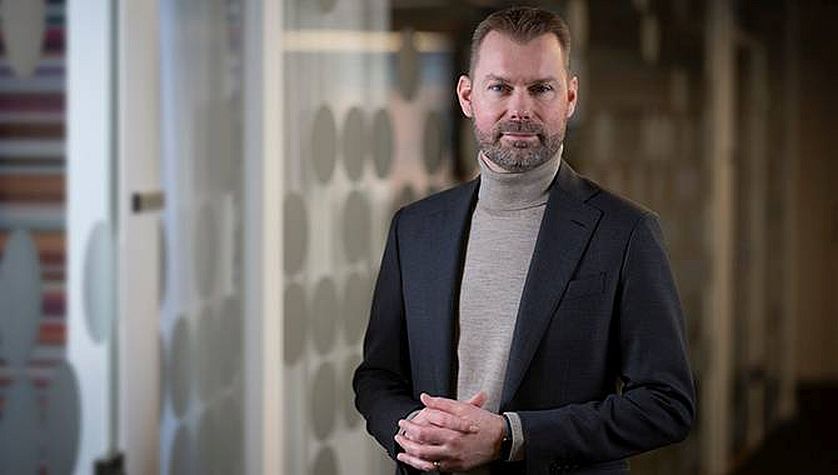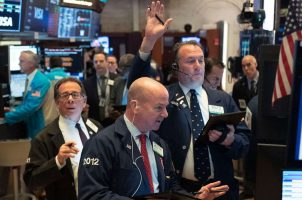Kindred Sees Q1 Drop In Revenue, Remains Optimistic About Long-Term Growth
Posted on: April 28, 2022, 08:38h.
Last updated on: April 29, 2022, 01:41h.
Global gaming company Kindred Group provided an interim report on its financial health for the first quarter of 2022 this week. The results are promising, although the company admits it has to overcome some near-term challenges.

To give its backers and the gaming community an idea of where it stands financially, Kindred Group released updated information on its financial health today. Based on unaudited data, its interim report covers the first quarter of the year. The figures aren’t where the company wants to be. However, it acknowledges that long-term forecasts reveal brighter days ahead.
For the quarter, Kindred’s combined revenue from B2B and B2C operations was £246.7 million (US$306.97 million). Gross winnings revenue for the B2C segment was £242.4 million (US$301.44 million), a decline of 31%.
Relax Gaming, which supports Kindred’s B2B operations, contributed £4.3 million (US$5.35 million). Kindred just acquired Relax Gaming last October.
Results Fall Short of Expectations
Kindred knew that the results were not going to be great after it provided a forecast earlier this month. However, the 31% drop is a huge miss. Much of the weakened position stems from a smaller footprint in Europe.
The operator exited the Dutch iGaming market last year but is confident it will make a return. That launch is contingent upon Kindred receiving a new license as the Netherlands reinvents its iGaming market.
Excluding The Netherlands, our diversified portfolio has seen solid casino performance across markets during the first quarter of 2022 with growth of 1% from the same period in the prior year despite tough comparatives,” said Kindred Group CEO Henrik Tjärnström.
Casino action provided 49% of Kindred’s revenue, while sports betting contributed 46%. Poker added 3%, while other games provided 2%. Over half of the revenue – 52% – came out of Western Europe, and 31% was from the Nordic region. Central, Eastern, and Southern Europe contributed 11%, and the rest of its market added 6%.
As a result of the downturn, the bottom line is substantially lower than last year. Pre-tax profit is only £7.6 million (US$9.46 million), a year-on-year drop of 91%. Net profit was £6.4 million (US$7.97 million), 91.2% off of the first quarter of 2021.
Long-Term Growth a Reality
For Kindred, the results are merely a bump in the road. Even though it is still dealing with a financial headache in Norway, its long-term growth potential remains high. Deeper expansion into the US market and the Kindred Sportsbook, a proprietary betting option, are going to drive the company’s growth.
Currently, the US market isn’t providing the results Kindred wanted. Gross revenue from the market declined in the first quarter to US$7.03 million from US9.29 million a year earlier.
However, the launch of its sports betting platform will provide some relief. The platform will make its debut in New Jersey sometime in the third quarter of this year.
Continued Focus on Responsible Gaming
Kindred is working on a plan that involves achieving “0%” revenue from harmful gambling by next year. It’s an ambitious goal, but the company is reportedly making strides to achieve it. For the first quarter, Kindred states that only 3.3% of its revenue came from harmful gambling.
In furthering its commitment to responsible gaming, Kindred announced an expanded partnership with Scottish soccer club Rangers FC. It has renewed its sponsorship investment in the club, including additional support for Rangers Charity Foundation, which supports mental health programs.
The charity and its Team Talk program are possible, in part, because of Kindred’s investment. Today, the company announced that it will provide additional support by donating a percentage of its front-of-shirt sponsorship to the program.
Related News Articles
Disney CEO Bob Iger Lukewarm on Sports Betting
Most Popular
LOST VEGAS: The Foster Brooks Robot at MGM Grand
Bally’s Sets Date for Tropicana Las Vegas Implosion & Party
Most Commented
-
VEGAS MYTHS RE-BUSTED: You Don’t Have to Pay Resort Fees
— August 2, 2024 — 16 Comments -
VEGAS MYTHS RE-BUSTED: Elvis Was a Straight-Up Racist
— August 9, 2024 — 11 Comments -
ANTI-SOCIAL BEHAVIOR: Vegas Casino Buffet Stunt in Poor Taste Goes Viral
— August 16, 2024 — 7 Comments -
VEGAS MYTHS RE-BUSTED: The Strip Tried Appealing to Families and Failed
— August 23, 2024 — 7 Comments
















No comments yet